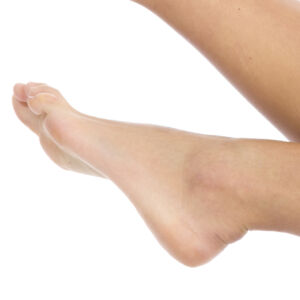Metatarsalgia causes inflammation and a sharp or burning pain in the ball of the foot and/or in the area near the big toe or around the second, third or fourth toe. Symptoms may also include numbness and tingling that gets worse when the feet are flexed or when standing, walking or running. The pain can be especially intense when walking barefoot on hard surfaces.
Causes
Most metatarsal problems mainly occur due to the foot impacting hard surfaces while walking or running and poor biomechanics that affect the way weight is distributed in the foot. This can put extra pressure on the metatarsal bones, which leads to inflammation and pain, especially in the metatarsal heads–the rounded ends of the bones that connect with the phalanges (toe bones). Metatarsalgia also can be caused by the following:
- Intense training or sudden increase in activity level.
- Your foot shape. A high arch can put extra pressure on the metatarsals, as can a Morton’s toe (shortened first metatarsal), which causes more weight than normal to be shifted to the second metatarsal head.
- Hammer toe, which occurs when one of the toes (usually the second) curls downward because of a bend in the middle toe joint. This contraction has the effect of depressing or dropping the metatarsal heads.
- Bunions. A swollen, painful bump at the base of the big toe (hallux) can develop due to hereditary factors or from wearing high heels or shoes that are too small. A bunion can weaken the big toe, putting extra stress on the ball of the foot. Ironically, surgery to correct a bunion can lead to metatarsalgia if the person does not get sufficient rest after surgery.
- Obesity or excess weight. Extra pounds put pressure on the metatarsals. Losing weight may reduce or eliminate some of the symptoms of metatarsalgia.
- Your shoes. High heels, which cause more weight to be transferred to the forefoot, are a common cause of metatarsalgia in women. Shoes with narrow toe boxes and athletic shoes that lack sufficient support and padding can also contribute to metatarsal issues.
- Stress fractures. Small fractures in the metatarsals or phalanges can be painful. They can also change the way weight is distributed on the foot.
- Morton’s neuroma. This benign growth of tissue around a nerve usually occurs between the third and fourth metatarsal heads and causes symptoms that are similar to metatarsalgia. It can also contribute to stress on the metatarsals.
Prevention and Treatment
Maintaining a healthy weight prevents undue stress on the feet. Shoe inserts reduce the impact to the forefoot and stress on the feet. Inserts can also help correct the biomechanical anomalies that can worsen metatarsalgia. When pain and soreness are severe or interfere with function, custom-made inserts or orthotics may be appropriate. Well-made inserts also help ensure proper foot alignment, which can prevent forefoot pain.
Properly designed shoes and boots have toe boxes that are sufficiently wide and high to allow the toes to spread. They help prevent pressure in the forefoot and reduce the risk of metatarsalgia. Avoid shoes with extremely high heels and pointed toes, which increase pressure and stress on the forefoot.
To ensure that feet are optimally protected, Ankle and Foot Center of Central Florida suggests that you wear only properly selected and fitted, as part of an integrated approach, padded socks with shoes with non-slip outsoles and any inserts or orthotics prescribed or recommended by a doctor or foot health professional. Peer-reviewed, published studies have shown that wearing clinically tested padded socks can help protect against injuries to the skin/soft tissue of the foot due to impact, pressure and shear forces.
Conservative treatments such as ice and rest can often relieve metatarsalgia symptoms. Ice packs can be applied to the affected area for about 20 minutes at a time, several times per day. To protect the skin, wrap the ice packs in a thin towel.
Over-the-counter pain relievers and anti-inflammatories such as ibuprofen, naproxen or aspirin help reduce pain and inflammation. Your doctor may advise additional treatments and suggest you to avoid sports and other vigorous activities while you recover. Lower impact activities are fine during this time.
opening hours
Monday
Tuesday
Wednesday
Thursday
Friday
Saturday
Sunday
8:00 am – 5:00 pm
8:00 am – 5:00 pm
8:00 am – 5:00 pm
8:00 am – 2:00 pm
8:00 am – 2:00 pm
Answering Service
Answering Service
GET IN TOUCH
1865 Nightingale Lane
Suite A
Tavares, Florida, 32778
admin@anklefootflorida.com
Fax: 352-385-7719


